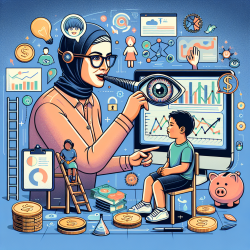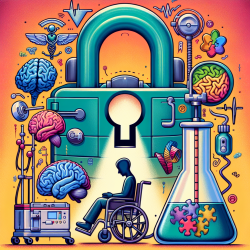Empowering Change: The Path to Inclusive Health Promotion for All
In the realm of health promotion, the journey towards inclusivity is not merely a goal but a necessity. The research article "Emerging Trends in Health Promotion for People with Disabilities" highlights the urgent need for a paradigm shift in how we approach health promotion for individuals with disabilities. As practitioners, embracing these insights can significantly enhance our ability to foster positive health outcomes.
Recognizing the Gaps
One of the key takeaways from the research is the recognition of low participation rates in health promotion activities among people with disabilities. This is often attributed to entrenched socioeconomic disadvantages and structural, programmatic, and attitudinal barriers. As practitioners, understanding these barriers is crucial in developing effective strategies that encourage participation and engagement.
Embracing Technology for Inclusion
The rise of mobile technology and digital health resources presents an unprecedented opportunity to reach underserved populations. The article by Michael Jones and colleagues discusses the current gaps in mobile health technology for people with disabilities and suggests innovative future directions. As practitioners, integrating these digital tools into our practice can bridge the gap and provide accessible health promotion interventions.
Expanding Our Skill Sets
David Morris and Gavin Jenkins emphasize the importance of integrating health promotion into the skill sets of rehabilitation professionals. Traditionally grounded in a medical model, the call to action is for physical and occupational therapists to evolve into health promotion practitioners. This shift not only broadens our professional capabilities but also aligns with the holistic approach needed to support individuals with disabilities.
Creating Inclusive Environments
Inclusive health promotion requires more than individual-level interventions. It demands a knowledge translation framework that influences policy and clinical care. Kerri Vanderbom's discussion on promoting inclusive programming through communities, systems, and policies underscores the importance of systemic change. As practitioners, advocating for such changes can create environments that support and empower individuals with disabilities.
Supporting Caregivers and Families
Another critical aspect highlighted in the research is the role of parents and caregivers in promoting behavior change. Often understudied, this stakeholder group is vital in the health promotion journey. Providing them with the necessary support and resources can enhance their ability to contribute positively to the health outcomes of individuals with disabilities.
Moving Forward
The insights from this research are a call to action for practitioners. By recognizing the unique challenges faced by individuals with disabilities and leveraging innovative solutions, we can contribute to a more inclusive and equitable health promotion landscape. As we implement these strategies, continuous evaluation and adaptation will ensure that we meet the evolving needs of this population.
To read the original research paper, please follow this link: Emerging Trends in Health Promotion for People with Disabilities.










